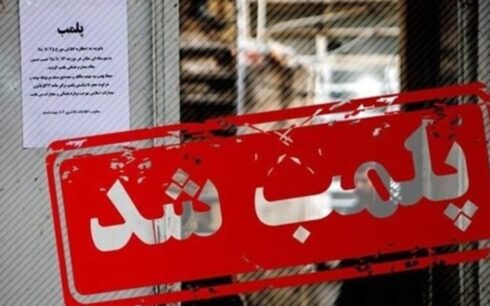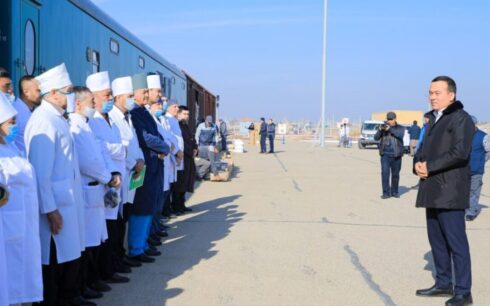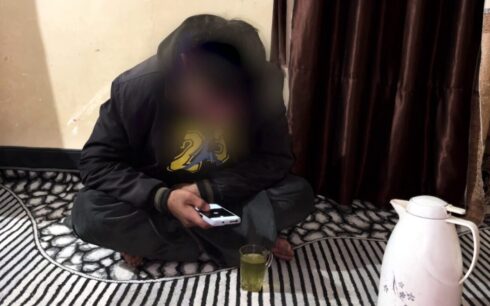The UN Assistance Mission in Afghanistan (UNAMA) has released the update on the human rights situation in Afghanistan for the first quarter of 2024, revealing an unsettling mix of continuing violence, restricted educational opportunities for girls, and crackdowns on former government personnel.
Education and Media Restrictions
The report highlights a grim start to the new academic year on March 20, with Afghan girls beyond sixth grade still barred from attending high school due to ongoing restrictions imposed by the Taliban authorities. Further exacerbating the situation, women journalists were explicitly banned from attending a ceremony in Kabul that marked the new academic year, with the Taliban Ministry of Education citing a “lack of proper places” for women. Additionally, although the scale of enforcement has reduced since January, there continue to be reports of hijab mandates enforced by the Propagation of Virtue and Prevention of Vice officials.
Targeted Violence and Attacks
The report details several violent incidents, underscoring the precarious security environment:
- On January 6, a public minibus in the predominantly Shi’a Hazara neighborhood of Dasht-e Barchi in Kabul was targeted by an IED, resulting in the deaths of at least five civilians and injuring at least 20 others. The attack, claimed by Islamic State – Khorasan Province (ISKP), was part of their campaign against what they termed ‘infidels’.
- A similar attack on January 9 targeted a commuter bus in the Alo Khil area, killing three and wounding 13—all staff of the Taliban Office of the Prison Administration.
- An unclaimed explosion on January 11 at a commercial center in the Dasht-e-Barchi area of Kabul killed at least three people and wounded 35.
- On March 21, a suicide bomber attacked a group of Taliban security forces in Kandahar city, resulting in at least 75 casualties, with the majority being Taliban police officers.
Persecution of Former Government Officials
Despite a proclaimed general amnesty by the Taliban authorities, threats and violence against former government officials and members of the Afghan National Defense and Security Forces continue, the report said.
According to the report, between January and March, UNAMA documented 38 instances of arbitrary arrest, 10 instances of torture, verbal threats, and four extrajudicial killings of these individuals.
The report says that this ongoing persecution starkly contrasts with public assurances, such as those given in a March 9 interview with Al Jazeera, where a Taliban spokesperson for the Ministry of Foreign Affairs claimed adherence to the amnesty policy.
Judicial and Penal Reforms
On a more administrative note, the Taliban Ministry of Justice reported several legal initiatives, including the provision of legal assistance to 46 indigent suspects and defendants and the release of new legal decrees. Significant attention has been given to the prison population, reported at 19,300 as of late January, with special committees established to review cases for potential early release during Eid-ul-Fitr.
Furthermore, efforts to raise legal awareness among the Taliban’s ranks and the general population were noted, with sessions held across multiple provinces covering the Taliban leader’s instructions, professional police behavior, and legal rights.
Freedom of the Media
On March 19, National Journalists Day, the Taliban Ministry of Information and Culture acknowledged the contributions of journalists in Afghanistan, the report says.
According to the report, the media landscape shows a mixed picture. Some journalists have noted improved access to information following the appointment of spokespersons for Taliban line departments at the provincial level and the creation of WhatsApp groups by some Taliban entities to disseminate information.
However, journalists and media workers continue to face a challenging environment. While some report better information flow, the media sector struggles with significant financial difficulties and various restrictions imposed by the Taliban authorities. Additionally, journalists face the risk of arbitrary detention in the course of their duties. For instance, on January 17, a journalist from Japan’s Kyodo News agency was arrested in Kabul under unknown charges and released on January 25. On January 18, two journalists from the Gardesh-e Etilaat News Center were arrested in Kabul on unspecified charges; they were released on January 20. On February 10, in Samagan, a journalist from Pajhwok News Agency was detained after requesting an interview with a Taliban official regarding protests by restaurant and hotel owners against tax increases; the journalist was released on February 12.
A Troubling Outlook
This comprehensive update from UNAMA underscores the troubling and complex landscape of human rights in Afghanistan as the country grapples with the dual challenges of internal security and international criticism. The continuation of targeted attacks, coupled with systemic repression of education and media freedoms, paints a stark picture of a nation struggling under the weight of its ongoing political and social upheaval.





